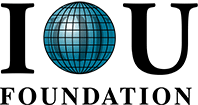Quality Assurance Committee
The Quality Assurance Committee is charged to examine any aspect of IOU Foundation practice, policy, culture, and educational process that may affect the academic quality of the learner’s programs. The Committee will identify areas of concern, gather information, and make recommendations to the faculty senate and the office of the president.
Comprised of representatives of the faculty, the learners, the alumni, and the administration, the Committee will serve as a forum for the exchange of concerns, information, and ideas among the constituencies of the University.
Included in the purview of the Quality Assurance Committee are the following areas:
- Recruitment/Admissions
- Degree Program Orientation
- Learning Agreement and Certification
- Research methods and Project Demonstrating Excellence
- Committee member roles for the degree
- Quality of learner’s work, literacy, dismissal of learners
- Resources for learning and research
- Curriculum evaluation and learning process
- Learning modes/documentation
- Philosophy/values of the Foundation
The QAC regularly reviews four areas essential to a quality academic program, assuring that the following is evident:
- A responsible Core Faculty mentor and strong doctoral committee members
- A well thought out and executed Learning Agreement
- A substantive assessment by a Second Reader and other committee members of the Learning Agreement, Program Summary, and Project Demonstrating Excellence
- Thorough and meticulous reviews at the administrative level
QAC further assures the following Guarantors of Integrity and Quality:
- An intensive initial program orientation with a close reading by each learner of all academic policies and procedures enumerated in the Learner Handbook.
- The nomination and appointment of a Faculty Mentor and other committee members charged with the responsibility for the academic quality of the learner’s program.
- A Learning Agreement or contract, drafted by the learner, which describes every aspect of the proposed program including new learning to be undertaken and how it is to be demonstrated, documented and evaluated. The Learning Agreement must be critiqued by the Second Reader and approved by the members of the doctoral committee.
- Supervision of the execution of the total program by the core faculty and committee members.
QAC endorses the following elements of the degree orientation process:
The orientation is the venue in which learners begin to understand and appreciate the vision of the Foundation as a center for study and person-centered learning. It is a learning environment developed by the faculty which offers encouragement and non-competitive collegiality.
The orientation ensures that each learner:
- understands the theory and practice of individualized learning
- develops a sense of community within the virtual network of the Foundation
- understands academic policies and degree requirements
- is made familiar with administrative policies for the degree
- is presented with various research methodologies and learning strategies
- learns how to establish criteria for demonstrating proficiency in the field of study
- discusses criteria for choosing committee members
